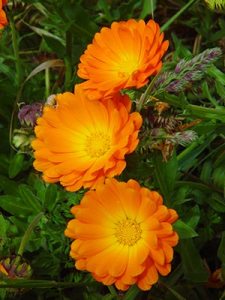What are peers? In school as a teenager we think of peers as our friends or someone who is the same age, background, social class, maybe it is even someone we want to be like.
The dictionary defines a peer as "A person who has equal standing with another or others, as in rank, class, or age: children who are easily influenced by their peers."
Why in the world do we need to find our peers? Don't we go through school being told that we need to choose our peer group carefully, as they will influence the rest of our lives. Or we are told that we don't need to follow our peers in everything they do. Perhaps our parents don't like our group of peers. I know my didn't like the ones I had when I was in high school.
 |
| Learn from your peers |
However, now I am going to tell you to find your peers. Find the people who know what you want to know, and learn everything you can learn from them. If we take the definition from the dictionary, and add in a few words, keeping in mind food storage and emergency preparation, here is what it might look like.
Peers: People who understand and practice food storage, who have earned the knowledge and respect because of their practice and study, and who can easily teach and help others understand the why's and how's of food storage and being prepared in today's world - these are the peers that we want to seek out.
Who are the peers we want to find? I am almost sure that there are some locally, close to wherever you are, that would be more than willing to help you learn. You just need to find who they are. Sometimes, they are quiet and like to keep to themselves, and other times you will find them teaching and sharing everything they know. Just look locally to find them, they are out there.
Another place to find them is on the internet. This internet that we have all become so dependent upon, is a wonderful tool, full of incredible amounts of information. If you do a search for food storage, or emergency preparedness, you will find more information than what you can learn in a short amount of time. In fact it can be a lifetime of study for some topics. Here are a few links of some of my favorite sites to go - or some of my peers that I learn from:
This is just a small sampling of the information that is available, and the peers that you can find on the internet. There are literally hundreds, if not thousands of sites now, that will share, teach and help you get on your way to being prepared and gathering in your food storage for your family. If you look on the front page of this blog, you will find quite a few other links that I recommend as well.
I have also written a book about becoming prepared. In it, I have listed my 52 weeks to preparedness, which I created for our church group many years ago. I still use it today to help people start from nothing
and build a storage, or start from where ever they are and build it up to something great. You can purchase my book from my amazon site here at this link: Davilyn Atwood on Amazon and this link will also share with you the other books I have written on frugal living, herbal medicine and nutrition.
 |
| Another of my books on Amazon |
You can find a fair amount of information right here on this blog. But if for some reason, you can't find what you need, please contact me and I will make sure you find it.
Peers are all around us. It seems like no matter what it is that we want to learn, there is someone close by who can teach us, all we have to do is open our eyes and use our mouths, and we will find what we need. So for now, I say - Find Your Peers - find the ones you need to get you where you want to be going, and go along for the ride.















